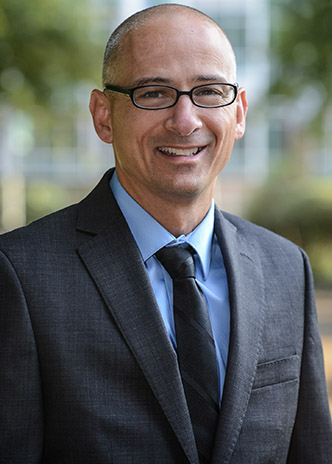 Gary Liguori, PhD, FACSM
Gary Liguori, PhD, FACSM
Dean, College of Health Sciences
Co-Director, Academic Health Collaborative
Professor of Kinesiology
University of Rhode Island
What is your role at URI?
I serve as the Dean of the College of Health Sciences, which has seven academic units. I also lead the Academic Health Collaborative, which is a consortium involving students and faculty from the Colleges of Nursing, Pharmacy and Health Sciences that focuses on the health and wellness of individuals and communities throughout Rhode Island.
What is the mission of the Collaborative?
The Collaborative has a broad intent. On the campus level, we’re working to engage students across the Collaborative to provide them with opportunities in and out of the classroom to work with faculty and explore opportunities in a variety of settings throughout the state, including working with other RI colleges and universities.
Our Institute for Integrated Health and Innovation also works as a research and outreach arm with a focus on serving the state -- and it’s moving fast. There are a number of promising contracts and Memorandums of Understanding with the state and healthcare providers, in addition to momentum around our community partnerships. One such initiative is IIHI’s work to increase the workforce in the area of mental health.
Finally, at the broadest level, the Collaborative has its eye on opportunities that fit with the University’s mission – opportunities that foster meaningful partnerships between our colleges and our community.
Working with the Collaborative, my perspective is that while we may be happy and able to take the lead on projects, we serve a more valuable role when we partner with our community.
You came on board in July 2016, what are your impressions so far?
The exciting thing is the response we’ve received from the community and the large appetite that’s out there to partner with us on projects and take advantage of the clinics, programs and resources we have available at URI. We’ve been bringing different people from around the state to meet with our faculty and students, and see how we can connect and work together. The response has been fantastic and it’s great to learn what the needs are and how the Academic Health Collaborative can support these efforts.
How do your prior research interests in exercise science and health promotion inform your work?
“Health” is a broad term, which is a good thing. It lets us attach ourselves to almost any initiative. Take, for example, the Lifestyle Wellness program the College of Health Sciences is playing a lead role in with the George and Anne Ryan Institute for Neuroscience. This is a program that looks at how positive health behavior can have profound effects on how people experience cognitive decline or Alzheimer’s Disease. The ability to work on a micro or macro level allows for many opportunities to support impactful research.
How is translational research making a difference in Alzheimer’s research?
We have groups looking at Alzheimer’s from a few different angles. One team is taking bench science – in this case, blood flow – and seeing how it plays out at the bedside. The effort looks at how high-intensity exercise may reverse cognitive decline – which would clearly have profound implications.
Alzheimer’s is, to a large degree, an issue of blood flow. We know exercise affects blood flow over short bursts of time – but is that enough? Seeing how it will play out in the long-term for patients with this disease is an interesting approach, and a great example of translational science in action.
What makes a research program forward thinking?
This question reminds me of when you sit around with faculty and talk about changing the curriculum. Whatever changes you make today won’t have an impact for five-to-six years down the road. Instead of focusing on what we need to change today, we should ask ourselves – “What do we need to change for tomorrow?”
That kind of question is what you find in high-level research. Research that looks not just at today’s problems but instead, at what we can address down the road.
Our Cyber Seniors program comes to mind as a great example of forward-thinking research in action. The program pairs URI students with seniors to help them navigate technology. It’s anything from turning on an iPad to filling out digital forms and navigating the nuances of technology. Faculty from various departments are involved as well as a number of community partners from around the state. The goal is help these seniors live richer lives, and ultimately, we’re working together to impact a huge part of our population.
How is Rhode Island’s research environment unique?
The size and population of the state put us at a tremendous advantage. People are physically close by which makes it possible for us to accomplish so much more. And, within that smaller population you’ve got a number of people with a shared interest.
Put another way: Rhode Island is a great pilot testing ground for a lot of things. We can quickly ramp projects up and scale them to an entire state – which many of our larger, neighboring states are not able to do. Advance-CTR is also an example of a statewide effort to reach out across institutions – and when we work together we can accomplish so much more.
What do you want clinical and translational researchers in Rhode Island to know?
Don’t be shy about expressing your ideas – there are great opportunities for collaboration in Rhode Island – and Advance-CTR is a great example of that.
Are there any misconceptions around clinical and translational research?
There are really good opportunities for collaborations across institutions in this state. I hope more researchers will begin to realize this and go after these opportunities.
What’s the best advice you’ve ever received?
As an undergrad, a professor told me that if you don’t ask, the answer is no. That one piece of advice changed my outlook on everything going forward.